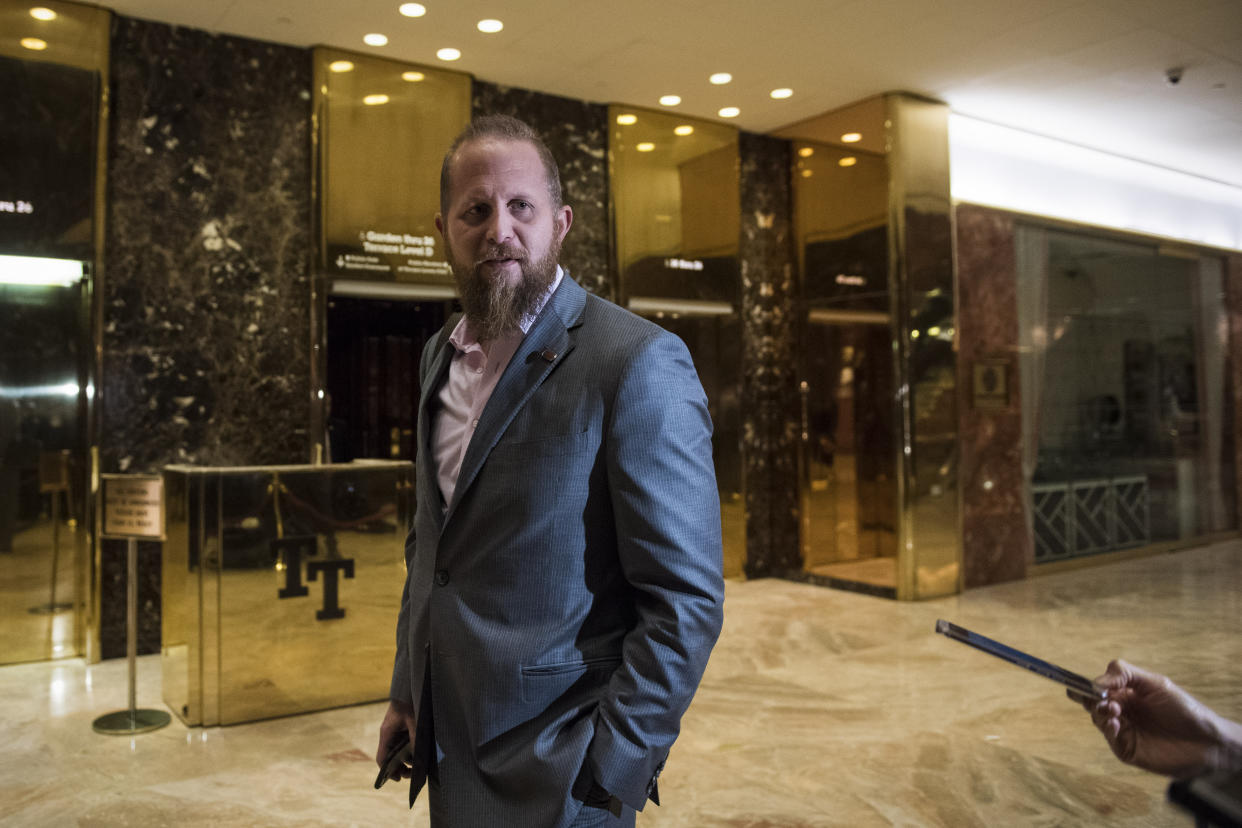How Trump's new campaign manager used Facebook to help him become president

President Trump announced Tuesday that he was promoting Brad Parscale to serve as his 2020 campaign manager.
But the new role for the man who served as Trump’s Facebook guru in the 2016 presidential campaign comes as debate rages over just how much the social media platform may have benefited the Republican candidate.
Formerly a freelance web designer, Parscale rose to become Trump’s digital strategist in the 2016 election and oversaw the campaign’s mobilization on Facebook, which — coupled with the candidate’s love of Twitter — has been credited as a key factor in his electoral victory. Parscale was also a marketing entrepreneur based in San Antonio who was reportedly brought into the campaign at the suggestion of Trump son-in-law and White House adviser Jared Kushner.
In a Wired essay published last week, former Facebook employee Antonio Garcia Martinez argues that the social networking site favored Trump in two primary ways. The first was geography: Ad rates in highly populated urban areas — which were targeted by the Clinton campaign — were more expensive than those in rural areas, where voters the Trump campaign was trying to mobilize lived.
Facebook’s system also helped Parscale’s team by rewarding ads that were more likely to be engaged with and shared, whether that meant they were provocative, controversial or outrageous. Trump ads had a greater chance at going viral, therefore they got more digital bang for their buck. As Martinez explained it in his piece:
“During the run-up to the election, the Trump and Clinton campaigns bid ruthlessly for the same online real estate in front of the same swing-state voters. But because Trump used provocative content to stoke social media buzz, and he was better able to drive likes, comments, and shares than Clinton, his bids received a boost from Facebook’s click model, effectively winning him more media for less money. In essence, Clinton was paying Manhattan prices for the square footage on your smartphone’s screen, while Trump was paying Detroit prices. Facebook users in swing states who felt Trump had taken over their news feeds may not have been hallucinating.”
But Facebook is disputing the reporting on its ad rates. Andrew Bosworth, a vice president at the company, tweeted a chart Tuesday afternoon rebutting the Wired story and showing that the Trump campaign, on average, paid more for their ads on the costs per thousand impressions.
Yet Parscale and his former rivals on the Clinton campaign seem to agree with Martinez’s view and not Bosworth’s chart. In response to the Wired story, Parscale wrote on Twitter that the Clinton campaign was paying far more than the Trump campaign for their ads.
“I bet we were 100x to 200x her,” said Parscale in a tweet posted Saturday. “We had CPMs that were pennies in some cases. This is why @realDonaldTrump was a perfect candidate for FaceBook.”
Jennifer Palmieri, a former Clinton campaign staffer, replied to say she agreed with Parscale’s assessment. Parscale also concurred with Wired editor Nicholas Thompson’s belief that while many at Facebook wanted Clinton to win, they also understood that Trump’s success could be good for future business by showing the power of the platform.
So true. https://t.co/G1jqwPGyHG
— Brad Parscale (@parscale) February 24, 2018
Totally. One thing that’s always intrigued me is that most folks at FB wanted H to win. But they knew Trump used platform better—and that his success is going to drive lots of business for them as future candidates copy him.
— Nicholas Thompson (@nxthompson) February 24, 2018
Parscale’s dealings with Facebook have brought him to the attention of investigators looking into the potential collusion between the Trump campaign and Russia. Earlier this month, special counsel Robert Mueller issued indictments related to the Internet Research Agency, a Russian “troll farm” that waged information warfare and meddled in the 2016 election via social media. Parscale spoke to the House Intelligence Committee last October but hasn’t been named in any of the indictments and said he was unaware of any Russian involvement. The indictments of the 13 Russian nationals indicated that some Trump campaign aides were “unwitting” participants in the foreign efforts, but did not name any staffers as co-conspirators.
“The only collaboration I am aware of in the Trump digital campaign was with staff provided to the campaign by Facebook, Google and Twitter,” said Parscale in a statement last summer. “Those experts in digital marketing worked side by side with our teams from Giles-Parscale, the Republican National Committee and Cambridge Analytica to run a professional and winning campaign.”
While Parscale was named to his new position on Tuesday, Trump filed the paperwork necessary to run for reelection on the day of his inauguration 13 months ago.
Read more from Yahoo News:
House Democrats seek 20 to 30 more witnesses in Russia probe, but GOP resists
Author Eric Metaxas, evangelical intellectual, chose Trump, and he’s sticking with him
Meet the teen girl behind the National School Walkout movement
Photos: Chris Hondros’s life and pictures highlighted in documentary, ‘Hondros’



